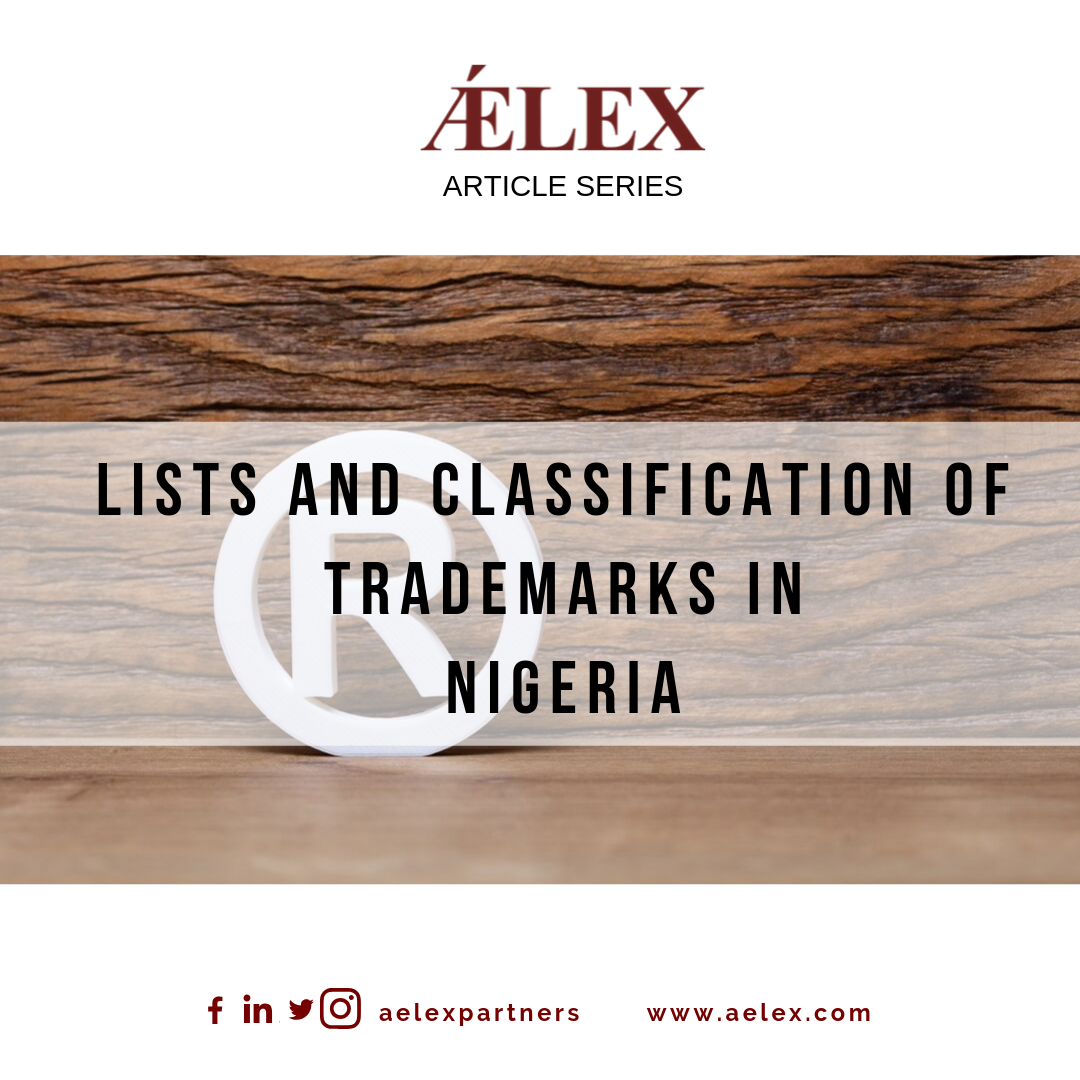A trademark is a distinct sign, mark, design or expression which distinguishes goods and services. According to the Trademarks Act[1], a trademark is protected if registration is applied for in the prescribed manner. In order to ensure uniformity across various jurisdictions, the International Classification of Goods and Services (“Nice Classification”) was established by the Nice Agreement 1957. This classification system is used in Nigeria as well as several countries globally for the registration of trademarks. The Nice Classification groups together similar goods and services into 45 different classes. Goods are listed in classes 1 to 34 while Services are listed in classes 35 to 45.
An applicant may choose to register a trademark in more than one class at an extra cost.
THE LIST OF TRADEMARK CLASSES FOR GOODS IN NIGERIA ARE AS FOLLOWS:
[1] Trade Marks Act, Cap T13 Laws of the Federation of Nigeria 2004 Class 1: Chemicals used in industry, science and photography, as well as in agriculture, horticulture and forestry; unprocessed artificial resins, unprocessed plastics; manures; fire extinguishing compositions; tempering and soldering preparations; chemical substances for preserving foodstuffs; tanning substances; adhesives used in industry; unprocessed plastics in the form of liquids, chips or granules.
Class 2: Paints, varnishes, lacquers; preservatives against rust and against deterioration of wood; colorants; mordants; raw natural resins; metals in foil and powder form for painters, decorators, printers and artists. Class 3: Bleaching preparations and other substances for laundry use; cleaning, polishing, scouring and abrasive preparations; soaps; perfumery, essential oils, cosmetics, hair lotions; dentifrices.

